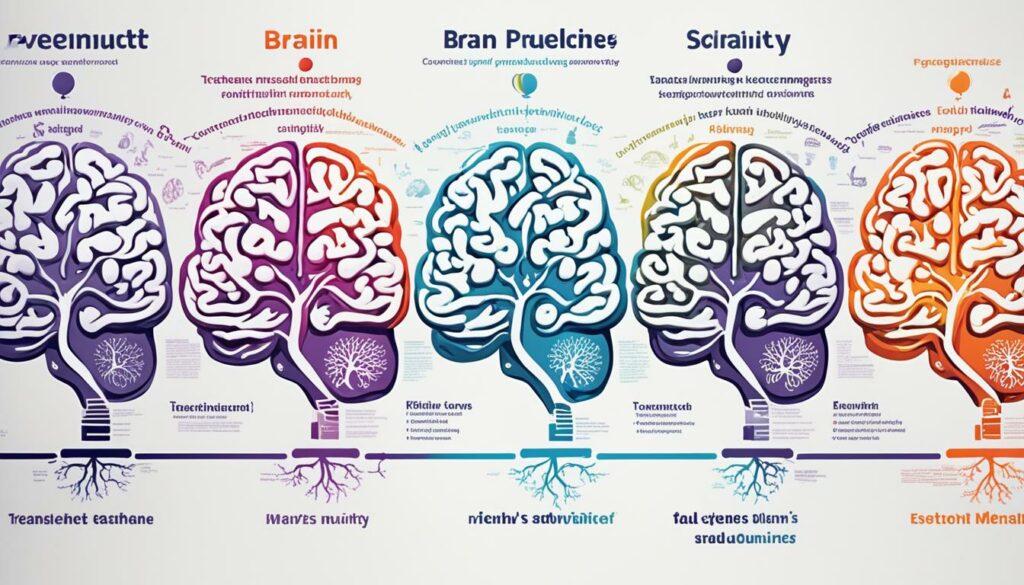Are Teens Ready for Today’s Challenges?
Adolescence is a crucial time in a person’s life. The teenage years are filled with immense change, growth, and discovery. As teenagers navigate the path from childhood to adulthood, they face a variety of unique challenges that shape their development and shape their future.
Today’s teenagers are faced with a rapidly changing world, influenced by technology, social media, and societal expectations. With so much happening around them, it is essential to ask: are teens ready for today’s challenges?
Teenagers have always faced a range of challenges, but the landscape has evolved significantly. Gone are the days when teenage challenges were limited to academic pressures and social dynamics. Today’s teens grapple with the ever-present influence of social media, cyberbullying, peer pressure, sexual activity, substance abuse, obesity, and mental health issues.
This article will delve into the various challenges that teenagers encounter in their daily lives. We will explore the impact of technology on their mental health, the importance of addressing sexual activity and health, the dangers of substance abuse, the growing concern of teenage obesity, and the academic pressures they face.
It is crucial for parents, educators, and society as a whole to understand and address these challenges. By doing so, we can help prepare our teens for the complexities of today’s world and provide them with the support they need to navigate these formative years.
Key Takeaways:
- Teenagers face a range of challenges in today’s world.
- The impact of technology and social media can significantly affect their mental health.
- Addressing sexual activity and health is important.
- Substance abuse is a concern among teenagers.
- Teenage obesity and body image issues are prevalent.
Understanding Teenage Social Issues
Teenagers face a wide array of social issues during their formative years, which can have a profound impact on their emotional and physical well-being. In today’s modern world, advancements in technology, particularly the rise of social media, have revolutionized the way teenagers interact with their peers and navigate romantic relationships.
The excessive use of electronic devices, including smartphones and laptops, has led to a noticeable decline in essential interpersonal communication skills among teenagers. This lack of face-to-face interaction has contributed to the rise of conditions such as FOMO (fear of missing out), loneliness, and isolation. As a result, many teenagers experience a disconnection from the real world, missing out on meaningful experiences and struggling with feelings of social exclusion.
“Excessive use of social media creates a culture of comparison, where teenagers constantly feel the pressure to measure up to idealized versions of their peers.”
The Impact of Social Media
Social media platforms have become a breeding ground for comparison and self-doubt among teenagers. The curated and often filtered highlight reels of their peers can contribute to feelings of inadequacy and low self-esteem. It has become increasingly challenging for teenagers to form a solid sense of self and develop healthy self-esteem when bombarded with images and updates that portray a seemingly flawless and perfect lifestyle.
Moreover, social media can exacerbate mental health issues, particularly depressive disorders. Studies have shown that teenagers, especially females and those from diverse racial backgrounds, are more susceptible to experiencing depression. It is imperative for parents to be aware of the warning signs, such as withdrawal, changes in sleep patterns, and declining academic performance, and seek professional help if necessary.
Cyberbullying is another distressing social issue that has emerged in the digital age. With the anonymity social media provides, bullies can target their victims relentlessly, amplifying and perpetuating the harassment. It is crucial for parents to have open and honest conversations with their teenagers about bullying, encouraging them to seek help if needed, and fostering an environment of trust and communication.
Despite the challenges posed by social media, it is important to recognize that technology is not inherently negative. When used in moderation and with proper guidance, technology can be a powerful tool for learning, creativity, and connection. It is up to parents to educate themselves about the benefits and risks of social media and teach their teenagers responsible and mindful online behavior.
Building Communication Skills
In this digital age, it is crucial to prioritize the development of strong communication skills among teenagers. Effective communication is essential for healthy relationships and emotional well-being. Parents can encourage their teenagers to engage in face-to-face conversations, practice active listening, and express their thoughts and feelings openly.
By nurturing healthy communication habits, teenagers can develop essential skills for building meaningful connections, expressing themselves effectively, and resolving conflicts constructively.
The Path Towards Empowerment
Understanding and addressing teenage social issues is key to empowering the next generation. By actively participating in their teenagers’ lives, parents can help them navigate the complexities of social media, develop resilience in the face of peer pressure, and build strong communication skills.
It is essential for parents to create a nurturing environment where teenagers feel safe to discuss their experiences and emotions. Open communication, active support, and acceptance are vital ingredients in empowering teenagers to navigate the social challenges they face in today’s rapidly evolving world.
Teenage Sexual Activity and Health

Discussing teenage sexual activity and health is an important responsibility for parents. While there has been a decline in the percentage of sexually active teens and the teen birth rate, it is crucial to ensure that teenagers have accurate information about safe sex practices and contraceptive options.
Many sexually transmitted infections (STIs) occur among young people between the ages of 15 and 24. These infections can have serious consequences on their health and well-being. Therefore, it is essential for parents to have open and honest conversations with their teens about sex, educating them about the risks and consequences of unprotected intercourse.
But what are some key points parents should cover when discussing teenage sexual activity and health?
Safe Sex Practices
First and foremost, parents should emphasize the importance of safe sex practices. This includes using barrier methods of contraception, such as condoms, which not only prevent unwanted pregnancies but also reduce the risk of contracting STIs. It’s crucial for teens to understand that using contraceptives should be a priority when engaging in sexual activity.
Educating about Contraceptives
Parents should provide accurate information about different contraceptive methods available to teenagers. This may include discussing various types of contraception, such as birth control pills, patches, intrauterine devices (IUDs), and hormonal injections. Providing this knowledge empowers teens to make informed decisions about their sexual health.
Encouraging Medical Advice
If teenagers become sexually active, it is essential to encourage them to seek medical advice. Regular visits to healthcare professionals or clinics specializing in adolescent health can ensure that teens receive appropriate guidance, STI testing, and contraceptive prescriptions. This professional support can contribute to their overall sexual health and well-being.
It’s worth noting that open communication between parents and teens plays a crucial role in establishing trust and providing a safe space for discussing sexual activity and health. Parents should foster an environment where teens feel comfortable asking questions and seeking guidance.
By addressing teenage sexual activity and health, parents can help their teens make responsible choices, protect themselves from unintended consequences, and maintain their overall well-being.
| Statistics | Teenage Sexual Activity | Teen Birth Rate | Contraceptive Use | Sexually Transmitted Infections |
|---|---|---|---|---|
| Current rates | Decreasing | Declining | Inconsistent | Prevalent |
| Trends | More emphasis on abstinence and safe sex practices | Improved access to contraception | Increased awareness and availability | Continued concerns |
| Key considerations | Communication, education, and guidance | Access to healthcare and contraceptives | Evidence-based information and resources | Regular testing and prevention strategies |
Remember, discussing teenage sexual activity and health with your teen can empower them to make informed decisions and prioritize their sexual well-being.
Teenage Substance Use and Abuse

Substance use and abuse is a concerning issue among teenagers, encompassing various substances such as marijuana, drugs, alcohol, prescription medications, and binge drinking. It is crucial for parents to educate themselves about these risks and have open conversations with their teens.
One notable trend is the increasing use of marijuana among teenagers, surpassing cigarette use in recent years. With changing laws and shifting societal attitudes toward marijuana, teens may develop misconceptions about its risks and potential harm.
However, it is essential to make teens aware of the potential dangers associated with marijuana use. The adolescent brain is still developing and can be more vulnerable to the negative effects of substance use.
Understanding the Risks
Aside from marijuana, other substances like alcohol and prescription drugs pose significant risks to teenage health. Alcohol use among teenagers is a prevalent concern and can lead to various problems, including impaired judgment, accidents, and even alcohol poisoning.
Binge drinking, defined as consuming a large quantity of alcohol within a short period, is a dangerous behavior that is more common among teenagers. It amplifies the risks associated with alcohol use and can have severe consequences for their physical and mental well-being.
Additionally, the misuse of prescription drugs is another form of substance abuse among teenagers. Access to these medications, often found in family medicine cabinets, poses a serious threat. Teens may abuse these drugs for recreational purposes or due to misconceptions about their safety.
Recognizing the Signs
It is crucial for parents to be vigilant and aware of the signs of substance abuse in their teenagers. Some common indicators include changes in behavior, academic performance, social circles, and physical appearance. Mood swings, secretive behavior, sudden changes in appetite or sleep patterns, and a decline in personal hygiene can also signal potential substance abuse.
If parents notice concerning signs, it is important to address the issue promptly and seek professional help if needed. Ignoring the problem or dismissing it as a phase can lead to more serious consequences.
Prevention and Support
To prevent teenage substance use and abuse, parents play a crucial role in providing education, guidance, and support. It is essential to have open and non-judgmental conversations about the risks and consequences of drug use.
Establishing clear rules and boundaries regarding substance use, modeling responsible behaviors, and fostering a supportive home environment can contribute to prevention efforts. Encouraging healthy coping strategies and providing alternative activities can also help redirect teens’ focus away from substance use.
Moreover, parents should familiarize themselves with resources available in their community, such as substance abuse prevention programs, counseling services, and support groups. These resources can offer additional support and guidance for both parents and teenagers.
“Open and honest conversations about substance use are crucial in helping teenagers make informed decisions and understand the potential risks associated with it.”
Teenage Obesity and Body Image

Teenage obesity is a significant concern, with approximately 22% of 12- to 19-year-olds in the US classified as obese. This alarming rate indicates the urgent need for parental awareness and proactive measures to address this health issue.
Overweight and obese teens, unfortunately, become targets for bullying, which can have detrimental effects on their mental and emotional well-being. Constant harassment can lead to low self-esteem, body dissatisfaction, and poor body image.
Moreover, teenage obesity poses severe health risks. Obese teenagers are more likely to develop chronic conditions such as diabetes, high blood pressure, and heart disease later in life. These health risks emphasize the importance of taking prompt action to tackle teenage obesity.
The Role of Parents
To combat teenage obesity effectively, parents need to be aware of their child’s weight and body mass index (BMI). Regular consultations with healthcare professionals can provide valuable insights and guidance on healthy eating habits and appropriate physical activities tailored to the teenager’s needs.
It is crucial for parents to foster a supportive environment that promotes positive body image and self-acceptance. Encouraging open conversations about body image and discussing media influences can help teenagers develop a healthy perspective on their appearance. Parents should emphasize the importance of overall well-being rather than focusing solely on weight or appearance.
Furthermore, parents play a vital role in instilling healthy habits, such as nutritious eating and regular exercise, in their teenagers’ daily routines. By setting an example and involving the entire family in these lifestyle changes, parents can create a positive and supportive environment that encourages healthy choices for all.
Building Resilience
Addressing teenage obesity is not just about physical health but also about building resilience to overcome challenges. By nurturing their teenagers’ resilience, parents can help them develop the strength and confidence needed to face societal pressures and maintain a positive self-image.
It is essential for parents to foster open communication, provide emotional support, and promote a positive mindset. Encouraging the development of problem-solving skills and emphasizing individual strengths can also help teenagers build resilience and navigate the complexities of body image issues.
Academic Pressures and High School Dropout Rates

Academic pressures can have a significant impact on teenagers, affecting their well-being and educational journey. In the United States, approximately 5% of high school students drop out each year, jeopardizing their educational attainment and future opportunities.
The consequences of high school dropout rates go beyond the immediate academic challenges. Individuals who do not complete high school often face reduced earning potential and limited career prospects throughout their lives.
Parental involvement plays a crucial role in addressing academic pressures and supporting their teens’ educational success. By actively participating in their teen’s education, parents can provide the necessary support and guidance to help them overcome academic challenges.
Collaborating with schools and teachers is also essential in ensuring that teens stay on track and achieve academic success. Together, parents and educators can create a conducive learning environment that fosters growth and development.
The Impact of Parental Involvement
Parental involvement in their teen’s education has been shown to have numerous benefits. It enhances school engagement, improves academic performance, and increases the likelihood of high school graduation.
When parents actively participate in their teen’s education, it sends a powerful message of support and reinforces the importance of education. It also allows parents to stay informed about their teen’s progress, identify any academic challenges early on, and seek the necessary interventions.
The Role of Schools and Teachers
Schools and teachers play a critical role in helping teenagers navigate academic pressures and succeed academically. They provide the necessary resources, guidance, and support to ensure that students receive a quality education.
Teachers can create a nurturing classroom environment that promotes student engagement and helps alleviate academic pressures. Additionally, schools can offer counseling services, academic support programs, and extracurricular activities that cater to the diverse needs and interests of students.
Addressing Academic Challenges
It is crucial for parents and educators to address and mitigate the academic pressures that teenagers face. Effective strategies may include:
- Setting realistic academic expectations
- Encouraging a balanced approach to academics and extracurricular activities
- Teaching effective time management and study skills
- Fostering a positive and supportive learning environment
- Providing opportunities for academic and career exploration
- Advocating for policies that reduce academic stress
The Long-Term Impact
Educational attainment has a lasting effect on individuals’ lifelong earnings and overall well-being. By addressing academic pressures and supporting their teens’ educational journey, parents and educators can help ensure a brighter future for the next generation.
| Educational Attainment | Lifelong Earnings (Average) |
|---|---|
| High School Diploma | $746,000 |
| Some College, No Degree | $1,010,000 |
| Associate’s Degree | $1,270,000 |
| Bachelor’s Degree | $1,730,000 |
| Master’s Degree | $2,270,000 |
Peer Pressure and Social Media Influence

Peer pressure has always been a challenge for teenagers, but with the advent of social media, its impact has reached new heights. Social media platforms have become breeding grounds for peer influence, with teens facing pressures to engage in risky behaviors, such as sexting, substance use, or bullying.
In today’s digital age, it is more important than ever for parents to equip their teens with the skills and knowledge to make positive choices and resist negative peer pressure. Open communication plays a crucial role in this process. By fostering an environment of trust and understanding, parents can encourage their teens to share their experiences, concerns, and challenges related to social media.
Setting boundaries is equally vital in navigating the influence of social media. Parents should emphasize the importance of responsible online behavior, such as maintaining privacy settings, being cautious about sharing personal information, and avoiding interactions with strangers. Establishing guidelines for screen time and encouraging teens to engage in offline activities that promote their well-being and personal growth can also help mitigate the negative effects of social media.
Furthermore, promoting positive role models can empower teens to make confident and informed decisions. By highlighting individuals who have made a positive impact through their choices, actions, and achievements, parents can inspire their teens to aspire to be their best selves.
“Parents should equip their teens with the skills and knowledge to make positive choices and resist negative peer pressure.”
Ultimately, a combination of open communication, boundary-setting, and the presence of positive role models can help teens navigate the ever-present influence of social media and peer interactions. By providing them with the tools to make informed decisions, parents can empower their teens to lead fulfilling and responsible lives both online and offline.
Focusing on Positive Choices
Encouraging teens to focus on positive choices is essential in helping them resist negative peer pressure. It is crucial for parents to have meaningful conversations about the potential consequences of engaging in risky behaviors and emphasize the value of making choices that align with their values and aspirations.
By discussing real-life scenarios and offering guidance on how to handle challenging situations, parents can prepare their teens to respond assertively and confidently when faced with peer pressure. Emphasizing the importance of self-respect, self-worth, and personal boundaries can empower teens to prioritize their well-being and make choices that align with their values.
Emphasizing Open Communication
Establishing a foundation of open communication is key to helping teens navigate the influence of social media and peer pressure. Parents should create a safe and non-judgmental space where teens feel comfortable discussing their experiences, concerns, and challenges related to social media. Active listening and empathy are essential in fostering trust and understanding.
Engaging in regular conversations about social media habits, online experiences, and the potential risks can provide parents with valuable insights into their teens’ digital lives. This knowledge enables parents to address concerns promptly, offer guidance, and provide support when needed.
Encouraging Positive Role Models
Positive role models can have a significant impact on teenagers’ decision-making and behavior. Parents should actively promote and discuss the achievements, values, and actions of individuals who exemplify positive traits and choices. This can be done by sharing stories, biographies, or interviews about individuals who have overcome obstacles, made a difference in their communities, or achieved success through positive choices.
Encouraging teens to seek out positive role models within their communities, schools, or online platforms can also inspire them to make choices that align with their aspirations and values. By surrounding themselves with inspiring individuals, teens can develop a strong sense of identity, resilience, and the confidence to resist negative peer pressure.
The Impact of Technology on Teenagers

The rise of technology, particularly social media, has had a profound impact on teenagers. While it provides opportunities to connect and learn, it also exposes teens to cyberbullying, online dangers, and negative content. Excessive screen time can contribute to mental health issues and disrupt healthy habits like sleep and physical activity. Parents should educate themselves about the latest apps and websites, set limits on screen time, and teach their teens about online safety and responsible technology use.
| Effects of Technology on Teenagers | Statistics |
|---|---|
| Social Media Influence | 90% of teens use social media, with 15% experiencing cyberbullying |
| Mental Health Impact | 20% of teens experience symptoms of depression due to excessive screen time |
| Online Safety Concerns | Over 50% of teens have shared personal information online |
The Influence of Social Media
Social media plays a significant role in the lives of teenagers, affecting their self-esteem, relationships, and overall well-being. Platforms like Instagram and Snapchat can create pressure to present a perfect image, leading to feelings of inadequacy and anxiety. Additionally, the fear of missing out (FOMO) can lead to increased screen time and a constant need for validation.
“Social media has the power to connect and divide us at the same time.” – Alicia, Teenager
The Importance of Online Safety
With the increasing prevalence of cyberbullying and online predators, ensuring online safety is essential for teenagers. Parents should teach their teens about privacy settings, the importance of not sharing personal information, and the potential consequences of online actions. Open communication and fostering trust can help teenagers feel comfortable discussing any concerns they may have.
Strategies for Responsible Technology Use
To help teens develop healthy technology habits, parents can implement the following strategies:
- Set screen time limits and encourage a balance between online and offline activities
- Engage in regular conversations about online experiences and potential risks
- Model responsible technology use and establish family rules
- Teach critical thinking skills to help teens navigate digital content and discern reliable sources
By prioritizing online safety, fostering open communication, and guiding teenagers towards responsible technology use, parents can mitigate the negative impact of technology and empower their teens to navigate the digital world in a healthy and safe manner.
The Teenage Brain and Development

The teenage years are a crucial period of brain development, shaping the foundation for adulthood. During adolescence, the prefrontal cortex, the part of the brain responsible for decision-making and impulse control, undergoes significant changes. This development explains some of the behaviors and challenges commonly seen in teenagers.
One factor that influences teenage brain development is social experiences and peer relationships. Interacting with peers helps teenagers refine their social skills, learn from others, and develop a sense of identity. These experiences play a crucial role in shaping the teenage brain and can influence their behavior, including risk-taking tendencies.
While the teenage brain is going through these changes, it also becomes more vulnerable to mental illnesses. Conditions such as anxiety and depression can arise during this developmental phase. It is important to provide proper support and guidance to teenagers during this critical time, ensuring they have the tools to navigate their emotions and seek help when needed.
Although the teenage brain is susceptible to mental illnesses, it is also remarkably resilient. Given the right guidance, support, and resources, most teenagers go on to become healthy and emotionally stable adults. Building resilience in teenagers involves encouraging positive coping mechanisms, fostering a supportive environment, and promoting open communication.
The Key Takeaways
- The prefrontal cortex, responsible for decision-making and impulse control, undergoes significant development during teenage years.
- Teenagers’ social experiences and peer relationships actively shape their brain development and influence their behavior.
- The teenage brain is more vulnerable to mental illnesses, such as anxiety and depression.
- With proper support and guidance, most teenagers go on to become healthy adults.
Understanding the intricacies of the teenage brain and its development is essential for parents and caregivers. It provides valuable insights into the challenges teenagers face and helps create an environment that fosters their growth and well-being.
Helping Your Teen Build Resilience
To help your teen face and overcome challenges in life, it is important to build their resilience. By instilling confidence, encouragement, intelligence, communication skills, emotional support, problem-solving skills, and a positive mindset, you can equip your teen with the tools they need to navigate the complexities of the world.
Boosting your teen’s self-confidence is crucial in building resilience. Encourage them to recognize their strengths and capabilities, and celebrate their achievements no matter how small. Remind them that they have the ability to overcome obstacles and grow from their experiences.
Providing encouragement and support is equally important. Let your teen know that you believe in them and their capabilities. Be there to offer a listening ear, offer guidance when needed, and provide a safe space for them to express their thoughts and emotions.
Nurturing their intelligence and problem-solving skills will also contribute to their resilience. Encourage them to embrace challenges and view them as opportunities for growth. Help them develop critical thinking and decision-making skills, empowering them to find solutions to problems they encounter.
Effective communication is key in building resilience. Foster open and honest discussions with your teen, allowing them to express their feelings, concerns, and aspirations. Teach them how to communicate effectively with others, including listening actively and expressing themselves assertively.
Cultivating a positive and supportive environment at home is essential. Create a space where your teen feels safe, loved, and accepted for who they are. Encourage positivity and optimism, helping them develop a positive mindset that will empower them to face challenges with resilience.
Remember, building resilience is an ongoing process. Be patient and understanding as your teen grows and develops. Offer guidance and support, but also allow them the freedom to make mistakes and learn from them. With your help, your teen can develop the resilience needed to thrive in the face of life’s challenges.
| Ways to Help Your Teen Build Resilience |
|---|
| Boost self-confidence |
| Provide encouragement and support |
| Nurture intelligence and problem-solving skills |
| Foster effective communication |
| Create a positive and supportive environment |
Final Thoughts for Parents
As a parent, you play a vital role in supporting your teenager through the challenges they face. By providing guidance, open communication, and unconditional love, you can help them navigate the ups and downs of adolescence with confidence and resilience.
One of the most important parenting tips is to be there for your teenager. Be a source of support and understanding as they go through various emotional and physical changes. Let them know they can always turn to you for guidance when they need it, and create an environment where they feel safe to share their thoughts and concerns.
Encouraging open communication is essential for building a strong parent-teen relationship. Take the time to actively listen to your teenager, showing empathy and understanding. By doing so, you can gain valuable insights into their experiences and provide the guidance they need.
Helping your teenager develop the necessary tools and skills to face challenges is crucial. Encourage them to develop problem-solving abilities, emotional intelligence, and effective communication skills. Support their growth by promoting a positive mindset and celebrating their achievements, no matter how small. This will build their confidence and resilience, helping them overcome obstacles.
“The unconditional love and acceptance you provide as a parent can have a profound impact on your teenager’s well-being and development.” – Dr. Jane Adams
Remember, your love and acceptance are fundamental in helping your teenager navigate the complexities of life. By being involved, supportive, and understanding, you can empower them to become independent, capable individuals who are well-equipped to face life’s challenges.
Take the time to connect with your teenager and foster a strong parent-teen relationship. Together, you can navigate the teenage years with love, patience, and a deep understanding of their needs.
| Parenting Tips | Support | Guidance | Open Communication | Understanding | Love | Acceptance |
|---|---|---|---|---|---|---|
| Listen actively to your teenager’s concerns | Provide emotional support through challenging times | Offer guidance and help them make informed decisions | Promote open and honest communication | Show empathy and understanding | Show love and affection unconditionally | Acknowledge and accept their individuality |
| Encourage them to seek help when needed | Be there for them in times of need | Set clear boundaries and expectations | Discuss sensitive topics without judgment | Respect their feelings and perspectives | Express your love verbally and through actions | Support their choices and decisions |
| Help them develop problem-solving skills | Guide them in setting and achieving goals | Teach them effective communication strategies | Encourage them to express their thoughts and opinions | Empathize with their struggles and challenges | Show affection and appreciation regularly | Celebrate their uniqueness and strengths |
Conclusion
Parenting teenagers can be challenging, but it is our responsibility to prepare and support them in navigating the complexities of today’s world. By understanding the specific issues they may face, such as social pressures, substance abuse, and academic stress, we can provide the guidance and tools they need to overcome these obstacles.
Open communication is key in fostering resilience in our teens. By creating an environment where they feel comfortable expressing their thoughts and emotions, we can help them develop the necessary skills to face challenges head-on. Let’s listen to their concerns, offer understanding, and provide unconditional love and support.
Building resilience in our teenagers is crucial. By encouraging their confidence, nurturing their problem-solving abilities, and instilling a positive mindset, we empower them to overcome adversity and thrive. With our guidance and support, our teens can navigate the challenges of today and emerge as confident, capable individuals prepared to tackle whatever lies ahead.
FAQ
Are teenagers more susceptible to social issues and challenges?
Yes, teenagers can be especially vulnerable to social issues and challenges due to their developing brains and rapidly changing bodies.
What are some common social issues that teenagers face?
Teenagers often grapple with depression, anxiety, cyberbullying, peer pressure, sexual activity, substance abuse, obesity, and academic pressures.
How does technology, particularly social media, impact teenagers?
Technology has introduced new social issues for teens, including a lack of essential communication skills, fear of missing out (FOMO), and increased exposure to cyberbullying and negative content.
How can parents address teenage sexual activity and reproductive health?
Parents should have open conversations about safe sex practices, provide accurate information about contraceptive options, and encourage their teens to seek medical advice if they become sexually active.
What are the risks associated with teenage substance use and abuse?
Teens may be at risk of marijuana use, alcohol use, prescription drug misuse, and addiction. Parents should have regular conversations about the dangers of substance abuse and monitor their teen’s behavior.
Why is teenage obesity a concern?
Teenage obesity can lead to long-term health problems and increased risk of bullying. It is important for parents to promote healthy eating habits, exercise, and positive body image among their teens.
How can parents help their teens navigate academic pressures?
Parents should be actively involved in their teen’s education, provide support and guidance, and collaborate with schools to address any academic challenges their teen may face.
How does social media influence peer pressure?
Social media amplifies peer pressure, exposing teens to risks such as sexting, substance use, and bullying. Parents should teach their teens to make healthy choices, set boundaries, and provide positive role models.
What is the impact of technology on teenagers?
Technology, particularly social media, can contribute to mental health issues, disrupted sleep patterns, and reduced physical activity. Parents should educate themselves about online safety, set screen time limits, and teach responsible technology use.
How does teenage brain development play a role in their challenges?
The teenage brain is still developing, affecting decision-making, impulse control, and vulnerability to mental illnesses. With proper support and guidance, most teens can develop resilience and overcome challenges.
How can parents help their teens build resilience?
Parents can boost their teen’s self-confidence, encourage problem-solving skills, foster effective communication, create a positive environment, and promote a growth mindset.
What is the role of parents in supporting their teenagers?
Parents should provide support, emotional understanding, guidance, and unconditional love to help their teens navigate challenges and become independent individuals.







